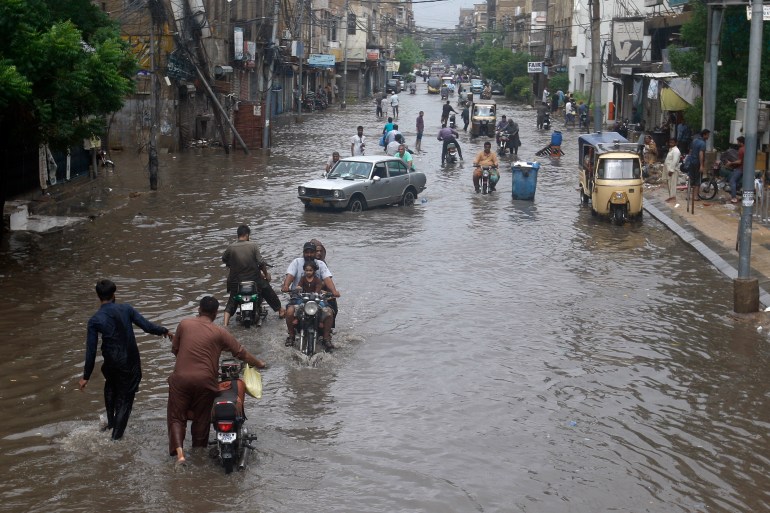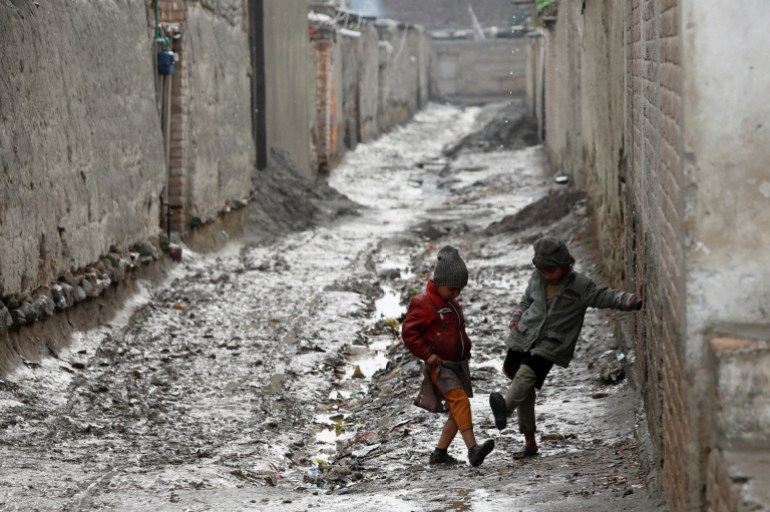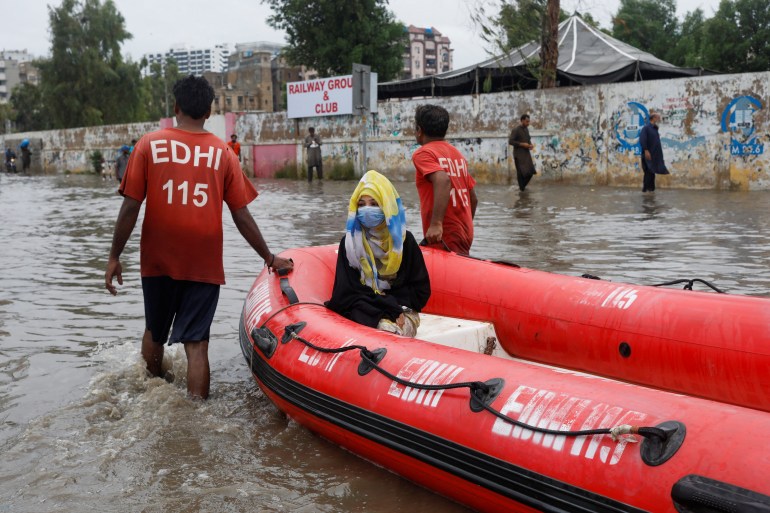Monsoon rains in Pakistan kill 147 in less than a month | Floods News
The death toll from rain-related incidents rises as rains trigger flash floods in some parts of the country, officials say.
The death toll from rain-related incidents over the past month has risen to 147 as monsoon rains continue to lash Pakistan, triggering flash floods in some parts of the country, officials say.
The National Disaster Management Authority said 88 women and children were among the dead. The monsoon rains also damaged homes, roads, bridges and power stations across the country, it said.
The situation was particularly dire in the major southern port city of Karachi, the country’s largest, where entire neighbourhoods remained submerged on Monday, leaving commuters stranded in places or attempting to wave through knee-deep water on foot or on bicycles.

Some residents arranged for boats to move them to safer places.
“At the moment, the situation is like this that we need to travel by boat rather than in vehicles as the roads are flooded,” said one resident, Abdul Raheem.
Some Karachi residents said they were forced to abandon their cars on submerged roads and walk through waist-high water. Authorities summoned paramilitary troops to help with efforts to drain the waters from flooded streets and evacuate people.
The rains are said to be almost twice as heavy as the average downpour at this time of the year. They started in mid-June, initially causing havoc in southwestern Balochistan province, where 63 people have died so far.

In Sindh province, of which Karachi is the capital, the disaster control agency said at least 26 people died. Heavy rain also struck national capital Islamabad and the eastern Punjab province.
Hundreds more were left homeless after their homes collapsed in the rain and flooding, he said, adding that eight dams had burst due to the heavy rains.
In northwestern Khyber Pakhtunkhwa province, two people, including a six-year-old, died and four were injured when their house collapsed due to rain, according to an official statement over the weekend.
Experts say climate change is the cause for the heavier than average downpour in Pakistan.
Every year, many cities in Pakistan struggle with the annual monsoon deluge, drawing criticism about poor government planning.
The season runs from July through September and experts say rains are essential for irrigating crops and replenishing dams and other water reservoirs in Pakistan.
In 2010, the worst floods in memory affected 20 million people in Pakistan, with damage to infrastructure running into billions of dollars and huge swaths of crops destroyed as one-fifth of the country was inundated.


Pingback: free tokens
Pingback: Diyala/baqubah/university/universal
Pingback: protein shakes
Pingback: horren draaikiepraam